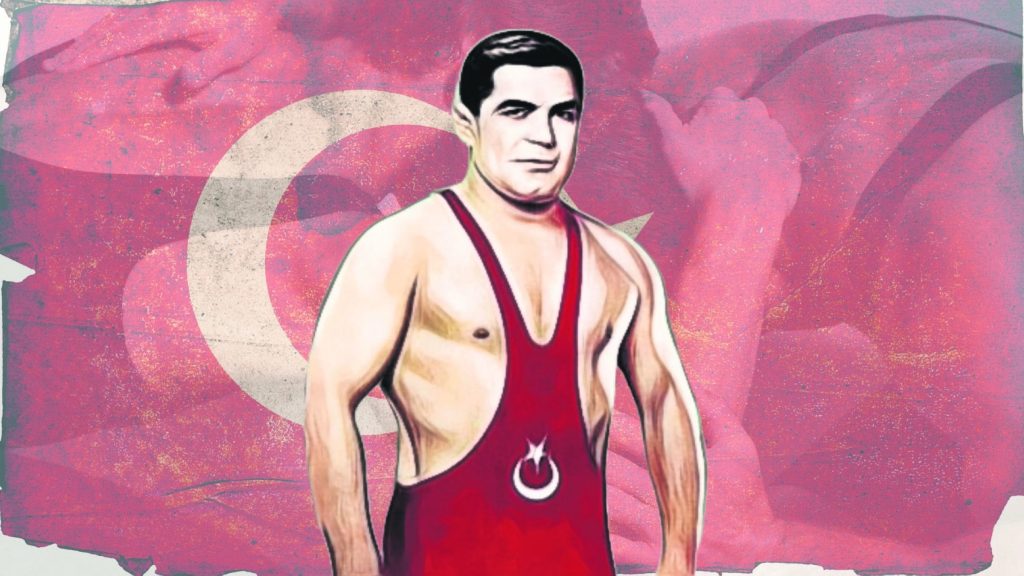Sixty-four years after his passing, the legendary Yaşar Doğu is being remembered for his unparalleled contributions to Turkish wrestling, earning him the title “Father of Turkish Wrestling.”
Born in 1913 in Karlı village, Samsun, Doğu’s early life was marked by tragedy when his father died in World War I.
Raised by his grandfather in the village of Emirli, Doğu began wrestling as a child, honing his skills in traditional karakucak wrestling.
His talent became evident, and while serving in the military in Ankara, he switched to the more formal style of mat wrestling, eventually securing numerous national titles.
Doğu’s rise on the international stage was meteoric.
At the 1939 European Championship in Oslo, he secured a silver medal in the 66 kg. category, suffering his first and only career defeat while competing for Türkiye.
He made a triumphant return in 1946, winning the European Championship in Stockholm at 73 kg., and the following year, he claimed another European title in Prague in Greco-Roman wrestling.
His crowning achievement came at the 1948 London Olympics, where he earned a gold medal, cementing his place in the annals of wrestling history. In 1949, he added another gold at the European Championship in Istanbul.
Doğu’s career reached its peak at the 1951 Helsinki World Championship, where he earned his only World Championship title, competing at 87 kg.
The Turkish national team, including legends like Nurettin Zafer, Haydar Zafer and Celal Atik, returned to Türkiye victorious from Helsinki, marking a golden era in Turkish wrestling.
Throughout his illustrious career, Doğu participated in 47 international matches, losing just once.
His 46 victories included 33 by pin, showcasing his technical dominance.
Beyond his competitive success, Doğu became a key figure in the development of Turkish wrestling.
After retiring from active competition, he dedicated his life to coaching, traveling from village to village to discover young talent.
His selflessness and dedication were unmatched – he carried firewood, mended torn mats, and made sure his students had work, all without seeking recognition or reward.
He became a beloved mentor, an embodiment of sacrifice and integrity.
In 1961, while coaching in Sweden, Doğu suffered a heart attack. Despite medical advice to rest, he continued his mission, shaping the next generation of wrestlers.
He passed away on January 8, 1961, in Ankara due to a heart attack. His grave is located at Ankara Cebeci Military Martyrs’ Cemetery.


